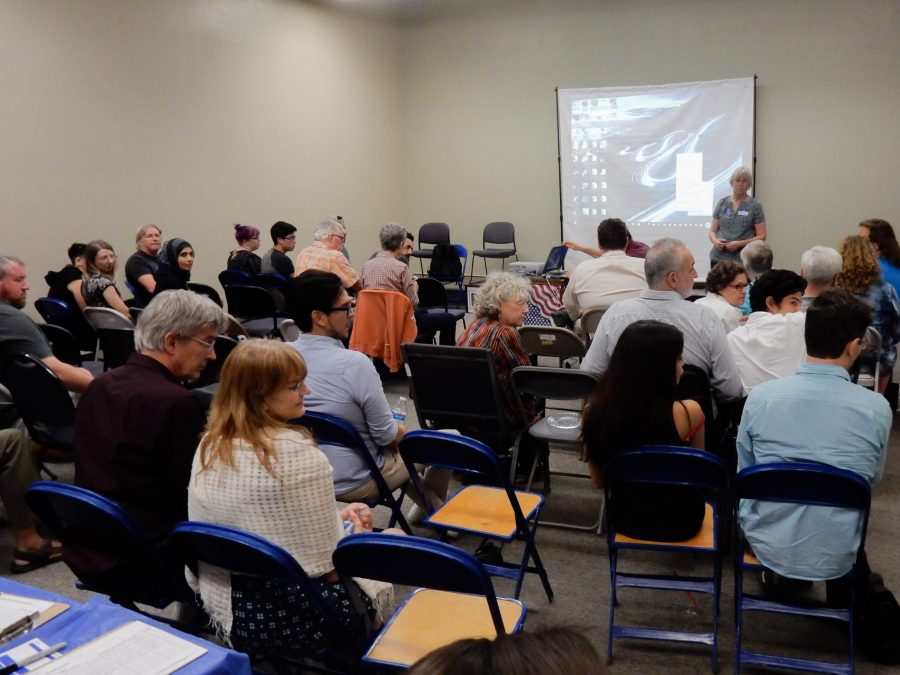Some students from area universities like UTSA and Incarnate Word are circumventing the elitism of status quo U.S. politics by partaking in grassroots movements.
Interest in the grassroots, shorthand for a people-driven bottom up approach to politics, has grown alongside the frustration of disenfranchised voters within both parties, who are demanding alternative action.
On August 24th, Bexar County Democrats member Zada True-Coursge hosted a public event at the Northeast Bexar County Democrats headquarters to celebrate the initiation of just such a movement, “Our Revolution.” The new non-profit launched by Senator Bernie Sanders, is an organizing vehicle for populist-grassroots concerns that hopes to sustain the energy galvanized by the candidate’s recently foreclosed presidential bid.
The approach of Our Revolution and grassroots work like it is to create change by mobilizing networks of people connected at the local and state level to effect policy and institutions.
Engagement in this kind of grassroots activism allows young people to stretch their voice further than a cast vote. It encourages localized participation. Whether it’s attending a presentation about climate change at UTSA , or exercising the right to concealed carry on campus, active engagement with issues that matter personally is an effective way to push for causes and express political opinions at scales from local to national.
During the launch event of Our Revolution, Bernie Sanders repeatedly called for active engagement in progressive issues, and continued support of “champions” running for office in races down ticket.
In Our Revolution’s inaugural speech, environmental activist and leader of the climate change focused organization 350.org, Bill McKibben, described “champions” as individuals who will fight the tough battles on behalf of their grassroots supporters.
Candidates animated by a grassroots spirit spanned the left-right political spectrum this election. The primary season featured both Vermont independent Bernie Sanders and real estate mogul Donald Trump. The two men contrast sharply, but both campaigns fundraising boomed from small-dollar grassroots donations.
Such diversity in the grassroots landscape can pose problems to students who want to engage with movements. After the event Zack Lyke, Campaign Manager of Tom Wakely for U.S. Congress, offered some advice, “”If students and young people want to get involved in grassroots politics, they really just need to find local issues, organizations, and candidates that matter to them.”
Alyssa Pope, a field organizer with the San Antonio based non-profit MOVE San Antonio, which focuses on youth civic engagement and voter registration feels the same.
“The current system is failing young people, it’s full of intentional and unintentional barriers that make it incredibly difficult for young people to navigate the system and get civically involved. I would say the value of our organization comes from the fact that we know first hand how confusing and hard that system is, so we are able to speak frankly and simply to educate young people about local politics,” Pope explained.
Once young people find the groups they’re seeking, there’s plenty to do.
“Even on the largest of campaigns, the grassroots work of stuffing envelopes, sticking stamps, phone banking, block walking, and talking to folks in your community is extremely vital to their success. If you show up to a campaign office, I can guarantee someone will put you to work” Lyke concluded.







